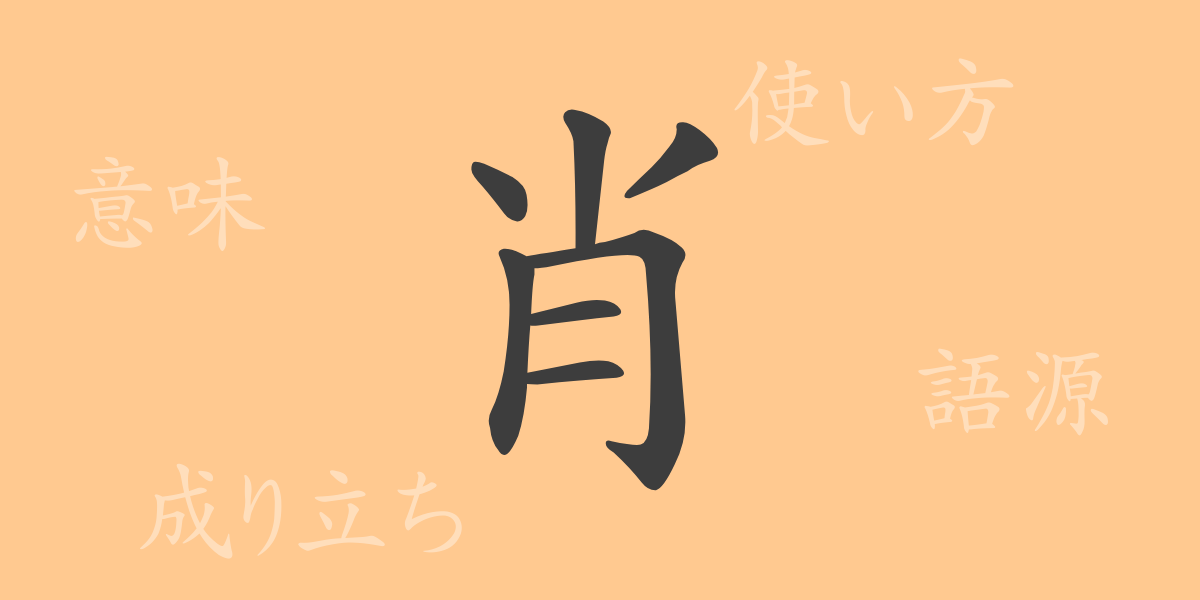The Japanese writing system features kanji, each with its own unique meaning and history. The kanji ‘肖’ (しょう) might not be commonly seen in everyday life, but its shape and meaning are deeply rooted in Japanese culture. In this article, we will delve into the origins, meanings, usage, and idioms associated with ‘肖’, exploring its charm.
Origins of 肖 (しょう)
The kanji ‘肖’ originated from ancient China as a pictograph resembling a human figure. Initially signifying ‘to resemble’, it has been used in various contexts over time. While sometimes representing parts of the human body due to its resemblance, it is primarily used to denote likenesses or portraits.
Meaning and Usage of 肖 (しょう)
The kanji ‘肖’ conveys meanings such as ‘to resemble’, ‘to imitate’, and ‘similar to’. In specific fields like law, it appears in terms such as ‘肖像権’ (portrait rights), indicating its versatile applications. It can also describe situations or things that resemble someone or something else.
Readings, Stroke Count, and Radical of 肖 (しょう)
The fundamental details of the kanji ‘肖’ are as follows:
- Readings: The On’yomi (Sino-Japanese reading) is ‘しょう’, and the Kun’yomi (native Japanese reading) is ‘あやかる’.
- Stroke Count: ‘肖’ consists of 7 strokes.
- Radical: The primary radical is ‘肉’ (meat), but in modern categorization, it is sometimes placed under ‘小’ (small).
Idioms and Phrases Using 肖 (しょう) and Their Meanings
There are numerous idioms and phrases that include ‘肖’. For example, ‘肖像画’ refers to a portrait painting, ‘肖像権’ describes the right to protect one’s likeness from unauthorized use, and ‘逆像に肖る’ is an idiom meaning to resemble the opposite. These expressions demonstrate the richness of the Japanese language.
Conclusion on 肖 (しょう)
Although not frequently used, the kanji ‘肖’ plays a significant role in specific contexts and expressions within the Japanese language. Its basic meanings of resembling and imitating give rise to a variety of uses that highlight the depth of the language. It is hoped that this exploration has allowed you to appreciate the unique allure of the kanji ‘肖’.

























